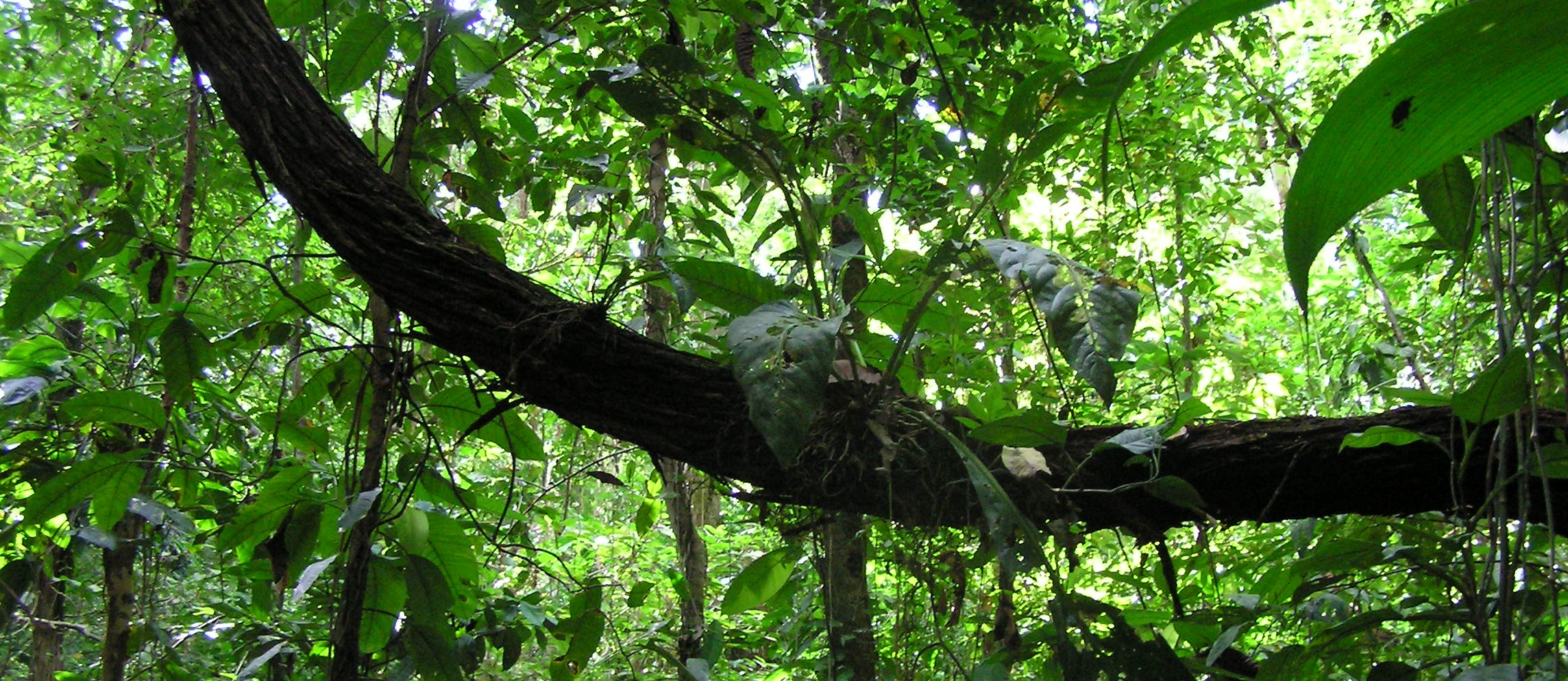Title
In deep shade, elevated CO2 increases the vigor of tropical climbing plants
Document Type
Article
Publication Date
2002
Volume Number
8
Source Publication
Global Change Biology
Abstract
Climbing plants have profound influences on tropical forest dynamics and may take particular advantage from atmospheric CO2 enrichment, thus potentially enhancing tree turnover. Here we test the effect of a four-step CO2 -enrichment on growth of three typical Yucatan (Mexico) climbers, across two low photon flux densities, representing typical understory situations. In pairs of two, species of Gonolobus (Asclepiadaceae), Ceratophytum (Bignoniaceae) and Thinouia (Sapindaceae) were grown on Yucatan forest soil in growth cabinets, which simulated the diurnal climate variation. Biomass increased non-linearly in response to CO2 enrichment from 280 (preindustrial) to 420 ppm and 560 ppm, but then (700 ppm) leveled off. The relative effect of CO2-enrichment between the two lower (280-420 ppm) CO2 concentrations was 63% at low light (LL == 42 mumol m(2-2) s(2-1) ), compared to 37% at high light (HL = 87 mumol m(2-2) s(2-1) ). This overall response of species pairs was the combined effect of linear and non-linear responses of the individual species across CO2 treatments. Plant biomass was 61% larger in HL compared to LL. The species-specific response depended on the neighbor, a species grew with h, irrespective of plant size. Stem lengthincreased, but not consistently across species and light conditions. Specific stem length (SSL, length per dry mass) declined non-linearly in all three species as CO2 concentration increased (more pronounced at LL than at HL). SLA (leaf area per unitleaf dry mass) became lower as CO2 concentration increased (more pronounced in HL). Enhanced vigor of climbers under elevated CO2 as documented here may accelerate tropical forest dynamics and lead to greater abundance of early succesional tree species. This could reduce forest carbon stocking in the long run.
